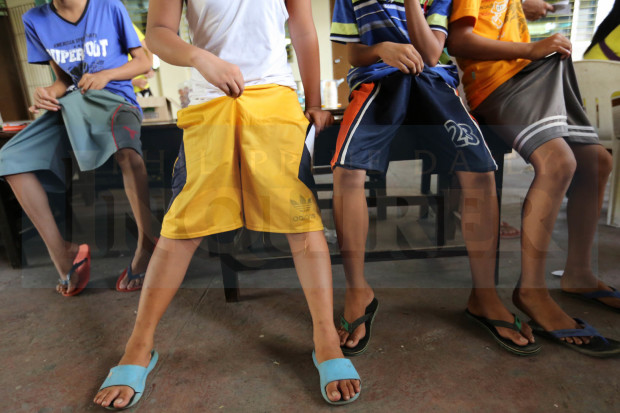Doc’s summer tip: Avoid traditional ‘pukpok’ circumcision

Boys undergo circumcision provided free by the Marikina City government at Fortune Elementary School on Wednesday, April 20, 2016. RAFFY LERMA/INQUIRER FILE PHOTO
Bring your son to the doctor instead of letting him be circumcised through the traditional “pukpok” method.
This was the advise of Dr. Katha Ngo, internal medicine-infectious diseases specialist at the Medical Center Manila (ManilaMed).
“What is important is it should be done by a medical personnel,” Ngo said. “Pukpok method is not advisable because it is dangerous. There is the threat of tetanus and infection. But when it’s done by a doctor, you can be sure that tools have been properly sterilized.”
“And make sure to observe proper wound cleaning to prevent infection,” she added. “Otherwise, they could suffer from having a swollen testis or scrotum. Any infection that is left untreated could lead to serious infection, even death.”
Circumcision – or commonly called “tule” in Filipino — is the removal of the foreskin of the penis. Usually, the procedure is performed on older boys as a rite of passage into puberty.
Article continues after this advertisementSome circumcisions are done in hospitals shortly after birth.
Article continues after this advertisementBut the “pukpok” method remains popular, especially in rural areas.
It is carried out without anesthesia. Young boys are made to chew guava leaves while the circumciser cuts the foreskin with a sharpened tool, usually a straight razor or “labaha.”
The guava leaves are then placed on the wound supposedly to fight infection. In most cases, the boys are instructed to bathe in a nearby river after the procedure.
Circumcision is usually preferred to be done during summer because there are no classes and most of the children are on vacation which provides more time for healing.
Ngo also said that newly-circumcised boys should not be allowed to bathe themselves in dirty bodies of water as the presence of bacteria could irritate the open wound caused by circumcision.
“Aside from getting infected in the process, taking a bath in rivers with open wounds also brings additional danger,” Ngo said.
Tetanus is a serious and possibly deadly condition that causes seizures and severe muscle spasms in the neck, abdomen, and limbs that could fracture the spine. It is caused by the Clostridium tetani bacteria that thrive in contaminated soil, animal feces, and other objects. /atm/rga